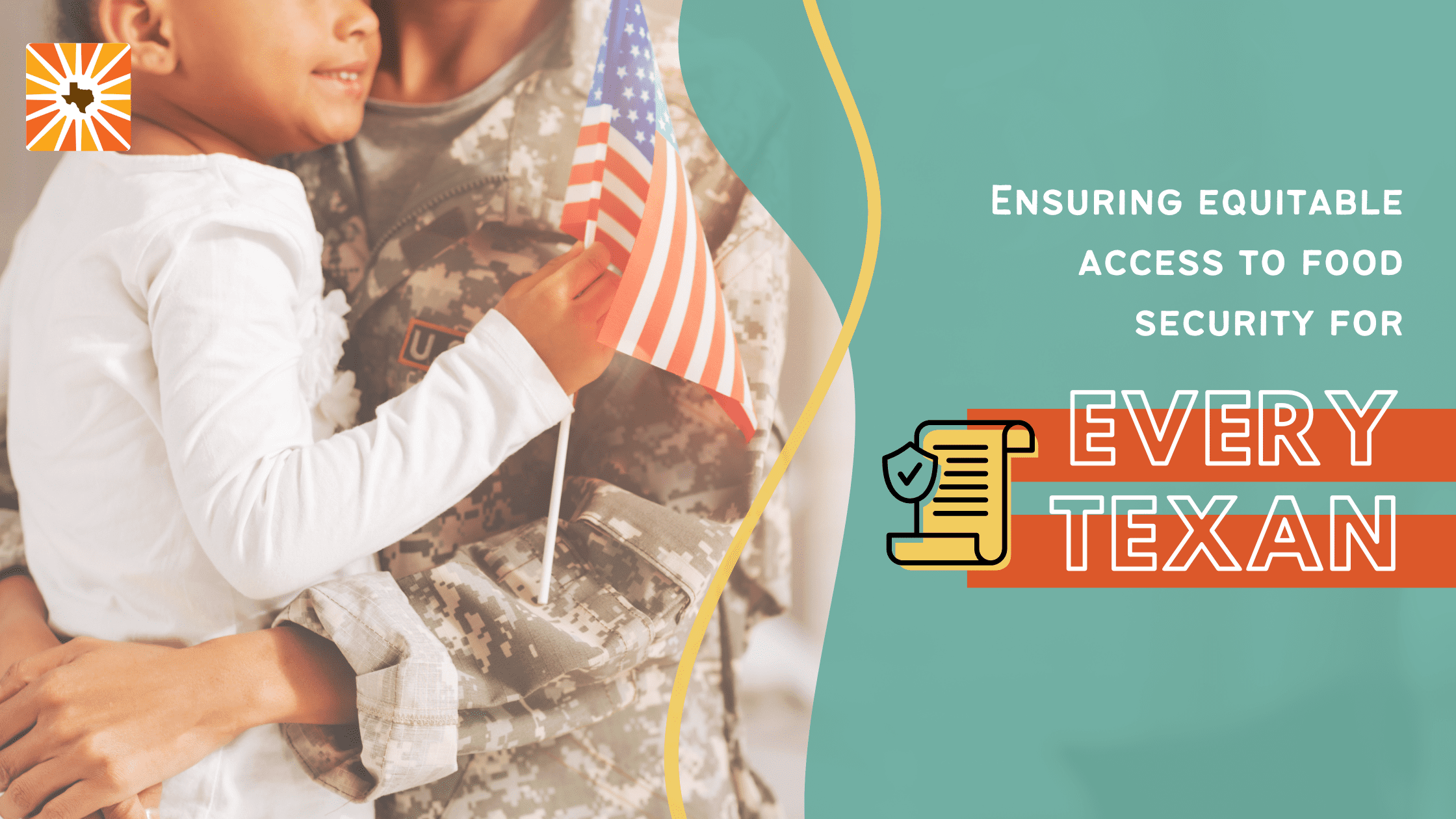Recent findings from the U.S. Department of Agriculture (USDA) together with data from the Military Family Advisory Network (MFAN) highlight how food insecurity negatively impacts the well-being of our service members in Texas. With a large number of military personnel stationed in Texas, addressing this issue is crucial not only for the well-being of our service members and their families but for military readiness as well.
Texas Snapshot: Food Insecurity Runs High Among Military Families
Food insecurity — the lack of consistent access to enough food for an active, healthy life — directly impacts cognitive function and physical health, which in turn are related to military readiness. About 25% of the American military population is dealing with food insecurity, a rate more than double that of their civilian counterparts.
MFAN’s research provides deeper insight into what’s happening in Texas. In 2019 the network conducted a national study to explore the state of support programming among military families; Texas has reported the highest rates of food insecurity among military families in successive surveys since. The surveys utilize the USDA six-item Short Form Food Security Scale for more accurate and comparable data. This tool helps identify varying levels of food insecurity – from low security to outright hunger – based on respondents’ answers. At the time of the study, there were 117,693 active duty service members and 142,802 active duty family members (dependents), for a total of 260,495 actively serving in Texas.
- Prevalence of Food Insecurity: In Texas, 15% of military family respondents are considered food insecure, with 6% at lower levels of food security and 9% experiencing conditions closer to hunger.
- Severity of Food Security: Among those indicating severe food insecurity, active duty members, veterans, and their families show significantly higher rates of food insecurity (9%) compared to the overall respondent average (7.7%).
- Demographic Details: The Texas data indicate a significant concentration of food insecurity among active duty service members and their spouses – comprising 42.6% of those at the far end of the hunger scale. Killeen, Texas, stands out as a hotspot for these challenges.
Food security and military readiness are inextricably intertwined. Service members who are worried about feeding their families are less focused and physically prepared for the job, which can compromise their ability to perform duties effectively.
Next Steps Toward Mitigation
To address this pervasive issue, it’s essential to consider both immediate and systemic solutions:
- Enhanced Support Systems: Military installations in Texas would benefit from enhanced, on-base support services, including access to food banks and financial counseling.
- Community and Policy Engagement: Strengthening community ties and advocating for policy changes that make food assistance programs more accessible to Texans can provide both short-term relief and long-term stability.
- Data-Driven Initiatives: Utilizing data from surveys, like those conducted by MFAN, will help tailor interventions to the specific needs and locations of affected service members.
High rates of food insecurity among Texas military families are more than just statistics; they represent a real challenge that’s altering the effectiveness of our military and the health of our service members. In coming together as a community and country to support these families, we can help alleviate this burden and ensure our military is ready and capable. It’s not just about providing food; it’s about providing stability and support where it’s needed most.

